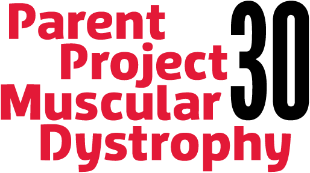
Today Pfizer announced that they have submitted a protocol amendment to their ongoing Phase III trial of their gene therapy candidate (fordadistrogene movaparvovec).
Across Pfizer’s studies, three Severe Adverse Events (SAE) have occurred leading Pfizer to make the decision to amend the current protocol. Based on these adverse events, individuals with mutations (exon deletion, exon duplication, insertion, or point mutation) affecting exons 9 through 13, inclusive, or a deletion that affects both exon 29 and exon 30 will be excluded from the protocol.
The trial will continue to recruit a total of 99 patients who fit the amended protocol. At this time, the clinical sites recruiting for this study are outside of the US as Pfizer awaits FDA’s response to their potency assay.
PPMD will continue to share information and we are currently working on compiling educational information for our community. If you have questions about your child’s or your own mutation, please contact our Genetics team or the Decode Duchenne program.
Although we have much to learn, we appreciate that safety is paramount and thank the brave patients and families that participate in ongoing studies.
Read Pfizer’s Community Letter:
September 28, 2021
We would like to share a recent change in our gene therapy clinical program for DMD.
Three serious adverse events of muscle weakness, two of which involved myocarditis (inflammation of the heart tissue), recently occurred in the ongoing studies of fordadistrogene movaparvovec and were attributed to the study drug. Pfizer’s External Data Monitoring Committee reviewed the safety findings and concluded that certain mutations in the dystrophin gene may be associated with a higher risk for these adverse events following treatment with fordadistrogene movaparvovec.
Ensuring the safety of study participants is our first priority. As such, we have proposed a change to our study protocols with a new criterion that will exclude participation for DMD patients with any mutation (exon deletion, exon duplication, insertion, or point mutation) affecting exons 9 through 13, inclusive, or a deletion that affects both exon 29 and exon 30. These mutations are estimated to represent less than 15% of patients with DMD. The proposed changes in the protocol and supportive study documents are currently under review by regulatory authorities and ethics committees. Enrollment at each site must await approval by these governing bodies, which will happen at different times for individual countries and sites.
We know this change will be very difficult news for the community. However, once the new safety findings and risk information were known, it was necessary to take this step to protect the safety of study participants.
We understand the sense of urgency for novel therapies among many families globally. We are appreciative of your trust and collaboration and assure you that we are working with the utmost care as we advance our program of gene therapy for Duchenne.
Sincerely,
The Pfizer DMD gene therapy team



 by: Parent Project Muscular Dystrophy
by: Parent Project Muscular Dystrophy

